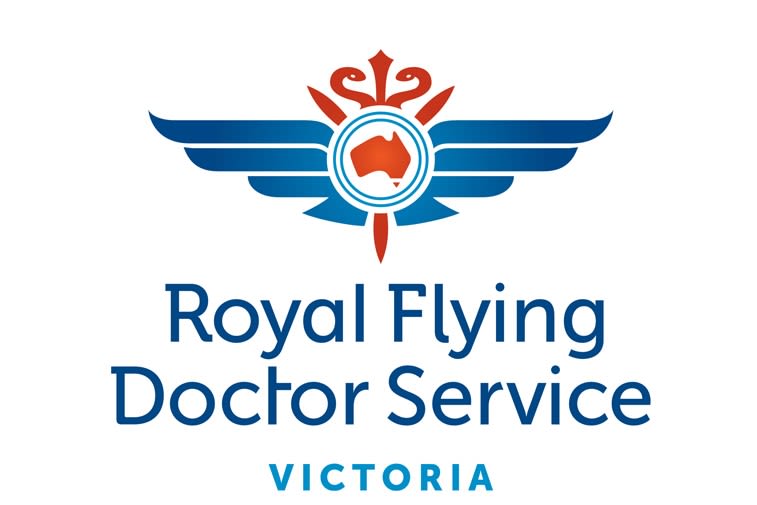Protecting rural communities together
The Flying Doctor teamed up with a number of regional health services to ensure communities in North West Victoria could access a COVID-19 vaccination in their own backyard.
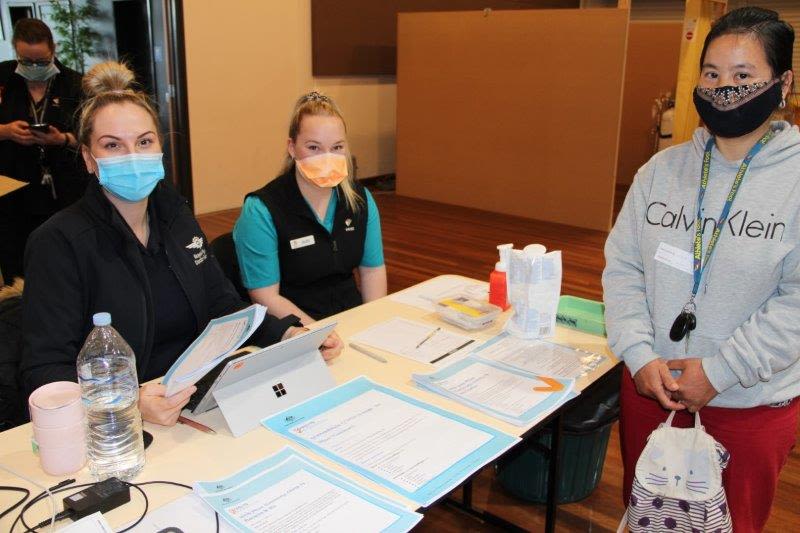
Right across rural and remote Victoria, accessing a COVID-19 vaccination these past few months has come with a few challenges. The triple threat that is vaccine availability, rolling lockdowns and yo-yoing travel restrictions has made things hard enough, but when you throw in the excessive distances many people are required to travel in order to reach their nearest vaccination centre, it’s understandable why vaccination rates in rural Victoria have been well behind those of the state’s metropolitan areas.
Wimmera Health Care Group (WWHG), West Wimmera Health Service (WWHS), Rural Northwest Health and the Bush Nursing Centres from Woomelang and Harrow are aware of this disparity, and have been working hard to close the gap.
“We are always short of doctors out here in the regional parts of Victoria, and [some towns] don’t have a dedicated vaccine clinic,” says Genevieve Lilley, the Western Sub-Hub Project Officer with WHCG.
As a result, Ballarat Health Service, along with the Western Sub-Hub partners, have been coordinating a number of pop-up clinics across the region to ensure all locals – especially high priority groups – can more easily access a vaccination. And with vaccination eligibilities recently opening up to include everyone aged 12 and up, these clinics have been wholeheartedly welcomed by locals.
RFDS Victoria was chosen to support these pop-up clinics in western Victoria due to our long history serving rural communities, and our extensive experience in mobile patient care. Our agile teams are adept at responding to rapidly changing environments, and we have a reputation for working effectively and cohesively with local service providers to provide excellent health outcomes – all of which made us the perfect partner for this program.
From Monday 13 to Friday 17 September, one of these clinics took place in the Wimmera town of Nhill. Infection Control Nurse Christine Dufty co-ordinated the site and the community engagement for the clinic, and Ambulance Transport Attendant Jiddo Schaaf was one of the RFDS Victoria team members who was on site to help out.
“It’s been so good here,” says Jiddo. “Christine has done an amazing job setting up and managing the clinic, which was built in the community hall, and she has been supported by a small but highly dedicated team of nurses from across WWHS. These nurses share Christine's passion and enthusiasm, welcoming in a rotating roster of staff from all over RFDS every day, warmly offering their support, exceptional clinic skills and knowledge with a good dose of humour.”
This partnership saw a total of 566 first doses of Pfizer and 21 second doses administered throughout the week, and considering the population of the town is only 2,200, this marks a great effort by all involved. As a result, 50.3% of people within the Hindmarsh Shire, into which Nhill falls, are now fully vaccinated, with 82.5% having received their first dose.
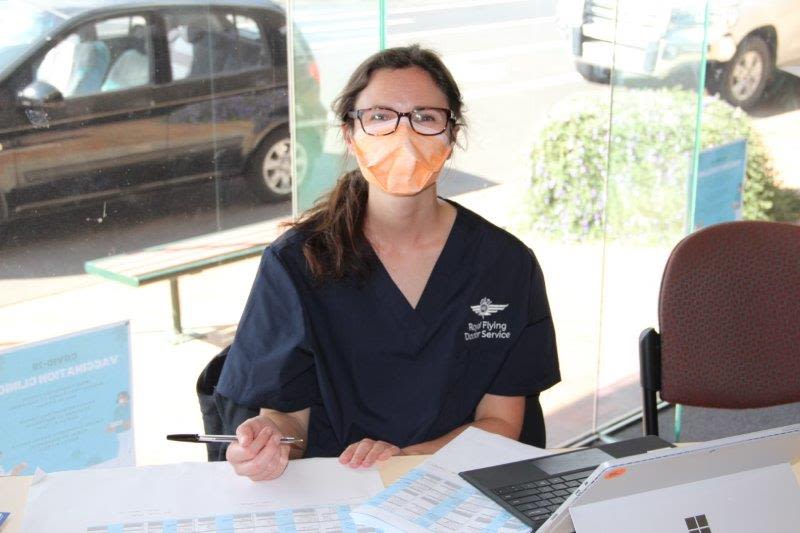
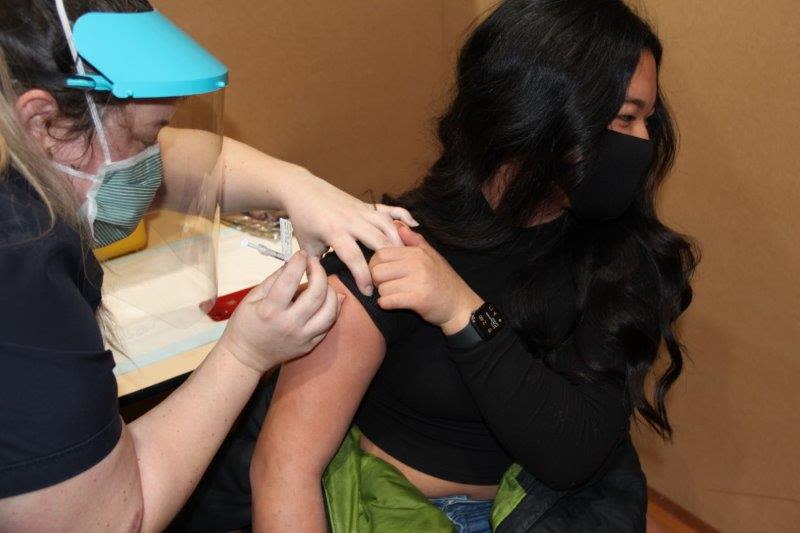
One such local who made good use of the clinic was farmer Tom Cook, who received his first Pfizer jab on the very first day.
“Having the vaccination clinic come to Nhill has made it much more accessible for many locals to get the vaccine. Until this clinic, we’d have to either travel an hour away to Horsham or stay on a waiting list for the doctors in town, which was a slow roll out.
“As a farmer, I found it hard to justify taking two hours out of my day for the round trip to Horsham,” says Tom. “So the Nhill clinic was perfect for me and many others, being a farming district.”
However, it wasn’t just locals who made good use of the clinic: Nhill is situated halfway between Melbourne and Adelaide, and possesses a large truck interchange due to the town’s proximity to the Victoria/SA border. As such, a number of truck drivers also stopped by the clinic, which was of particular importance due to their industry’s vaccination mandate: in order to keep travelling over the border, truck drivers had a strict deadline by which to get the vaccine, so the clinic was exceedingly well received by this transient community.
Another group for whom the clinic was absolutely essential was the town’s large Karen community. Karen refugees from Myanmar make up about 10% of Nhill’s population, and predominantly work for one of the town’s poultry processing factories. As the government has identified those working in the country’s meat processing industries as a high priority, locals and WWHS had to work together to ensure translators were on hand during these large group bookings.
“The response from the community has been really good, and the translators have been absolutely fantastic to work with,” says Genevieve.
All in all, the clinic consisted of a number of moving parts, which all needed to work seamlessly together to achieve a positive, COVID-safe outcome.
“We managed to get people through really quickly, both walk-ins and bookings,” says Jiddo, who notes the importance of partnering with trusted local services to run such clinics. “The WWHS nurses are pillars of their community, with strong ties to local community groups, and were therefore able to reach out to members of the community to fill appointments in the clinic so that no vaccine was wasted.
“You could not find a better group of nurses to work with.”
These sentiments were shared by the team at WWHS.
“I went up to Nhill on Monday, the first day, and I was working with a couple of Flying Doctor fellows,” says Genevieve. “They were really keen, really smart, really quick to learn. It was just very refreshing and fantastic. Their help was really appreciated.”
The clinic is due to return to Nhill on the week commencing 24 October for residents to get their second Pfizer jab, ensuring the whole town feels safer and more protected from the ongoing threat of the pandemic.
“I think, like any town, there would have been widespread lockdown [if the virus had got into Nhill prior to the vaccination push],” says Genevieve. “There's very limited acute care capacity out here, even in Horsham, let alone Nhill. So if people became acutely unwell, they'd be transferred to Horsham, but Horsham is always stretched and is currently not a COVID treating hospital. So, if somebody did get very sick, it would be a really difficult situation.
“The clinics are a huge boon for the future of how the pandemic can play out up here,” Genevieve concludes, before jokingly referencing the earthquake felt across Victoria last week: “And it happened just in the nick of time too, because it really feels like Armageddon is breathing down our necks!”
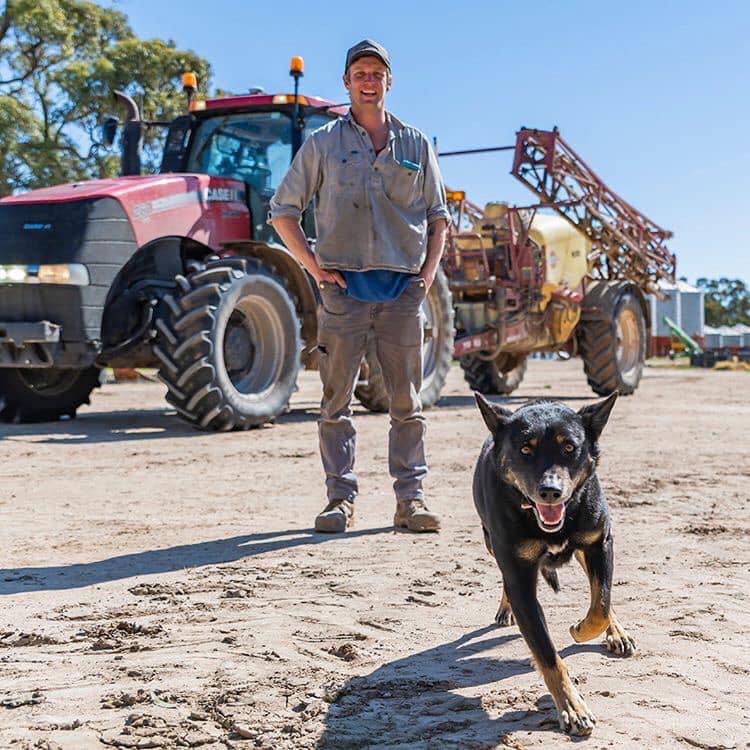
To find out more about RFDS Victoria’s involvement in the state-wide vaccination push, visit our website.

